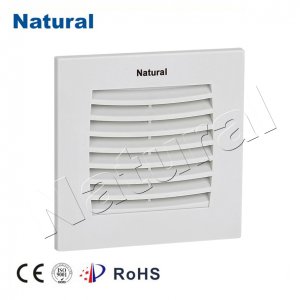Introduction

Electrical panels are the backbone of modern infrastructure, providing the vital function of distributing electricity to various circuits and systems. However, their efficiency and longevity can be compromised by environmental factors such as dust, debris, and heat. One solution that has gained traction in recent years is the use of electrical panel fan filters. These unassuming components play a significant role in maintaining optimal panel performance by improving airflow, reducing contamination, and mitigating temperature-related issues. Airflow Optimization Efficient airflow is crucial for keeping electrical panels operating within safe temperature ranges. As electrical components generate heat during operation, inadequate ventilation can lead to overheating and potential malfunctions. Fan filters are designed to work in tandem with panel cooling fans, facilitating the circulation of air while simultaneously capturing airborne particles that could obstruct the cooling process. Dust and Debris Mitigation Dust and debris are omnipresent threats to the proper functioning of electrical panels. Accumulation of particles on sensitive components can hinder their performance and even cause short circuits. Fan filters act as barriers, preventing these particles from entering the panel in the first place. By doing so, they significantly reduce the risk of damage and the need for frequent maintenance. Filter Types and Material Considerations Fan filters come in various types and materials, each suited for specific environments and requirements. Traditional mesh filters are effective against larger particles but may become clogged over time, impeding airflow. For harsher settings with finer particles, HEPA (High Efficiency Particulate Air) filters are an excellent choice, as they can capture up to 99.97% of particles down to 0.3 microns in size. Additionally, some filters are treated with hydrophobic coatings to repel moisture and oil, making them suitable for industrial environments. Installation and Maintenance Installing a fan filter is a straightforward process, generally involving securing the filter in front of the panel’s cooling fan. Regular maintenance, however, is essential to ensure optimal performance. Depending on the environment, filters might need to be replaced or cleaned periodically to prevent clogging. Many modern filters come with indicator systems that alert users when maintenance is required. Energy Efficiency Fan filters not only enhance the electrical panel’s performance but also contribute to energy efficiency. When panels are cooled efficiently, fans don’t need to work as hard to maintain optimal temperatures. This reduces energy consumption, leading to cost savings and a more environmentally friendly operation. Cost-Effectiveness and Longevity Investing in fan filters is a cost-effective strategy in the long run. By preventing dust and debris from entering the panel, the need for frequent cleaning, repairs, and component replacements is greatly reduced. This leads to extended panel life and increased uptime for critical systems. Conclusion In the realm of electrical panels, ensuring consistent performance is paramount. The introduction of fan filters has revolutionized how panels function, improving airflow, reducing contamination risks, and enhancing overall efficiency. By maintaining optimal operating temperatures and safeguarding sensitive components, these unassuming components play a pivotal role in the reliability and longevity of electrical panels across various industries. As technology advances, we can expect even more innovative solutions to further elevate electrical panel functionality.